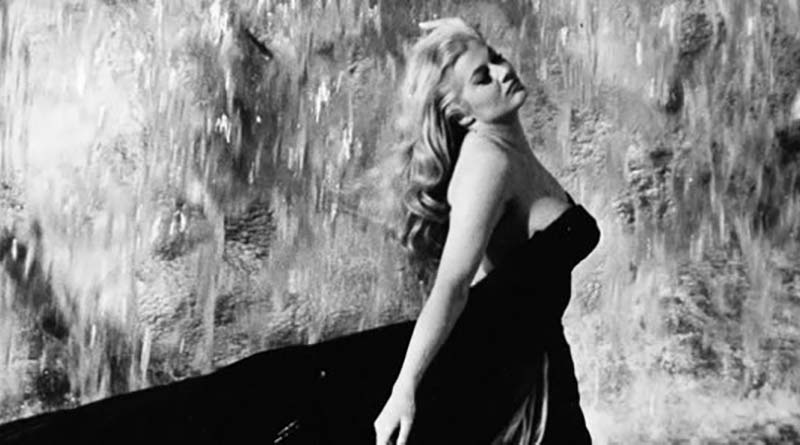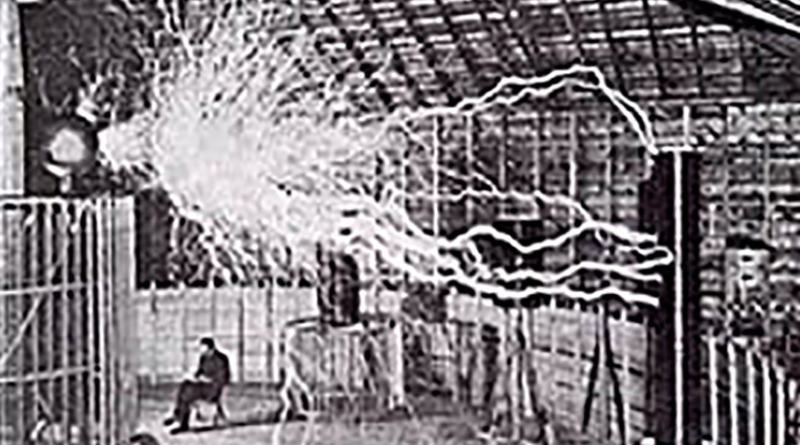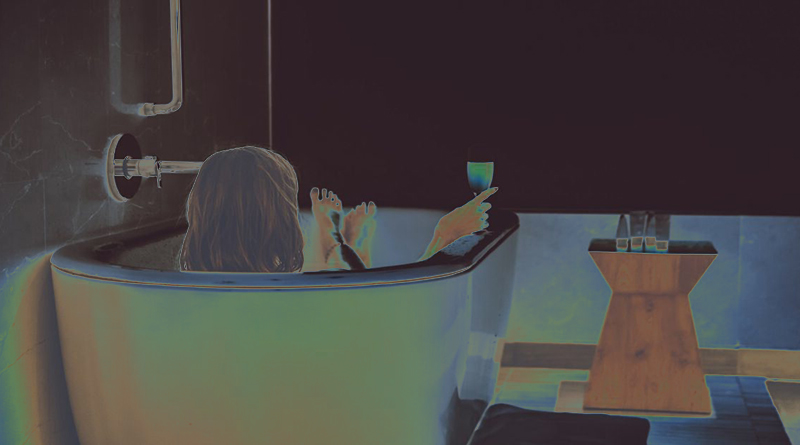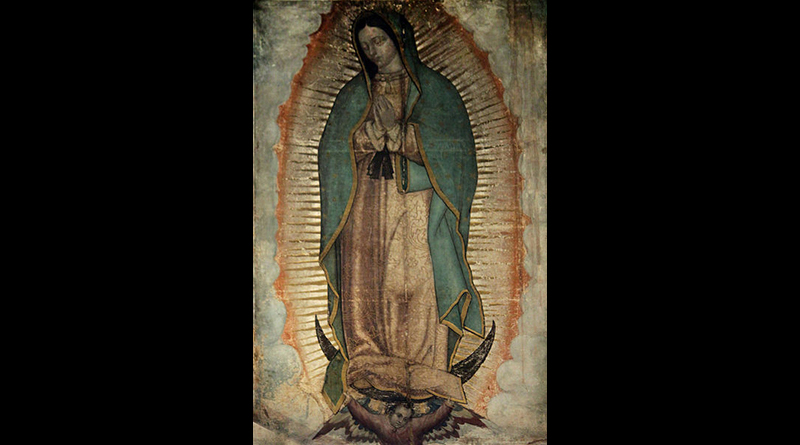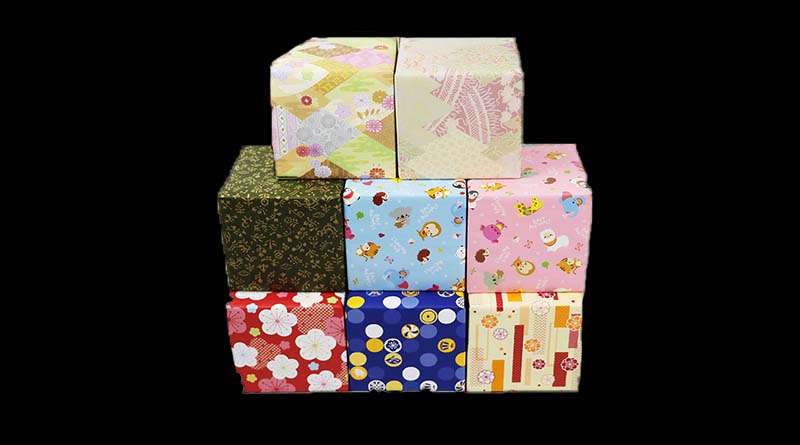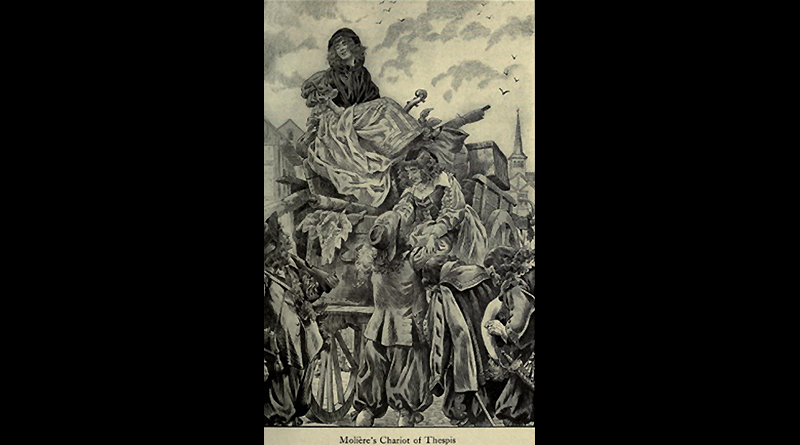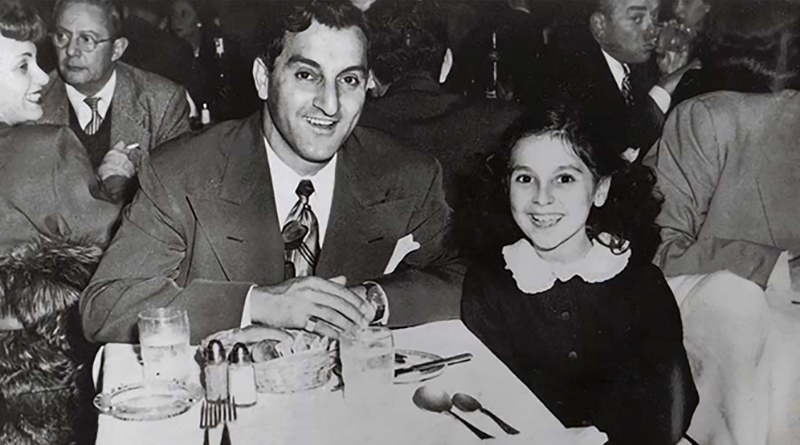(photo: Anita Ekberg in La Dolce Vita) I’ve wanted to use the story of my first love in a film, but it never quite fit in, and I was worried that it might seem trite because the idea had been used by others. First love is a subject many people like to write about. When I was sixteen, I saw a girl of angelic beauty seated in the window of a house on the block where I lived. Though I had never before seen an angel, she was exactly how I imagined an angel should look. She lived so near, yet somehow I had never met her, nor even seen her. Perhaps it’s because my eyes weren’t ready to see her until that moment. I knew I had to meet her, but I wasn’t certain how to do it. It was a different time, and another code of behavior, out of the past, prevailed.
I thought of drawing a picture of her in the frost on her window along with a little message. I decided this would be too subtle. She wouldn’t know who drew it, unless I signed it, and she probably wouldn’t know who I was, anyway. And what would keep other people from reading my message to her? Especially her parents. And what if it melted?
I decided the best approach was to be direct. I drew a picture of her from memory. Then I walked by her window while she was sitting there, and held up my picture. She smiled and opened the window, and gracefully accepted the picture. On the back of the picture I had written a message asking her to meet me on a well-known corner in Rimini.
She arrived at the place, at the designated time. I was waiting with flowers. She was punctual, a quality I have always appreciated in a woman, or for that matter in a man. It’s a kind of respect paid to the other person. When meeting a woman, I’ve always believed one should be early and wait for her. That day long ago, however, I was there so early that when she arrived promptly, I’d already been waiting a long time. I imagined that she wouldn’t come, and I was already thinking about departing. Thus I would have made true any doubts I had.
From then on, we took walks together, rode our bicycles together, and we had picnics to which I brought my father’s Parmesan.
In my dreams, I kissed her. My dreams were highly romantic and totally noble. I worshiped her and saved her from untold dangers and defeated all the dragons who threatened her, human and otherwise. In reality, with her being only fourteen, I hesitated to kiss her and startle away the muse. Also, at sixteen I had never kissed a girl and didn’t quite know how it was done.
Our relationship was abruptly brought to an end. I had given her brother a billet-doux to carry to her, and he was to bring me one in return. At our house, he was intercepted by my mother, who offered him some of her enticing cake while he waited for me. We always had delicious food in our house. The foolish boy was so captivated by the cake that he forgot to give me the note and left it there amidst the crumbs on the table for my mother to read.
My mother immediately leaped to what was for her the most terrible possible conclusion. I am certain that in my wildest dreams I have never been able to imagine anything equal to what my mother could, because my concept of sin was not so well developed as hers. She went directly to the house of the girl and confronted my friend’s parents, accusing their daughter of having seduced her son. Oh, that it had been true!
Her parents treated the accusations as hallucinatory ravings, which indeed they were, and they believed totally in their daughter’s innocence. They decided, however, it was better not to have bad relations with a neighbor who lived just across the street, and though I wasn’t present, I’m certain my mother presented a terrifying presence there, wearing her self-righteousness.
After that, I was too embarrassed to face my ladylove. I was not a man, but a child. All my life I’ve been a coward, physically and emotionally. I’ve never liked arguments, and have tried to avoid at all cost any sad or angry scene, especially with a woman.
Almost immediately, her family moved to Milan. I’m certain it had nothing to do with me. I had mixed feelings. I was sad that I would never see the angelic creature again, but I was grateful not to have to face the mortification of a meeting.
That was, however, not the end of it. Some years later, when I was in Rome, she wrote to me, giving me her telephone number. I called her in Milan. She invited me to come and see her. It was wonderful. She inspired some of my stories at that time. I inspired her even more.
She became a journalist, and some years later she wrote an entire novel about our relationship, which I never read, but about which I was told. Apparently, in a roman a clef, I was the male protagonist, and she was the heroine. She seemed to have remembered even more than I of what had happened, not in our childhood romance but during our meeting of 1941. It was before I met Giulietta.
What a strange feeling to have someone write about me in that way — to make public our private moments, changing them to make more dramatic and entertaining reading. Already, I was accustomed to doing that to others, but having it done to me produced an odd sensation. At the time, I didn’t look at the book. Years later, I thought of looking for it, but I never did. I might have found it.
— Federico Fellini,in Charlotte Chandler’s book I, Fellini

